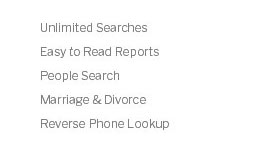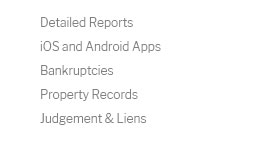 |
 |
|---|
|
|
|---|
 |
 |
 |
 |
|---|---|---|---|
 |
 |
 |
|
 |
|||
 |
 |
 |
|
 |
|||
 |
 |
 |
|
 |
|||

view public records confidently and within the rulesWhat counts as public records?Public records are documents created or kept by government bodies that the public can inspect, such as property deeds, court dockets, business registrations, meeting minutes, and some vital record indexes. Availability varies by jurisdiction, and sensitive details may be redacted for privacy. How to get startedBegin at the source: county recorder, clerk of court, state archives, or a city open data portal. Many offices offer free indexes online with pay-per-document downloads; others require in-person requests or mailed forms. If a file is missing, ask about retention schedules and alternate record series. Practical tips for efficient searches
When records are sealed or exempt, request a written citation to the statute and ask whether a redacted or summary version is available.
|
|---|